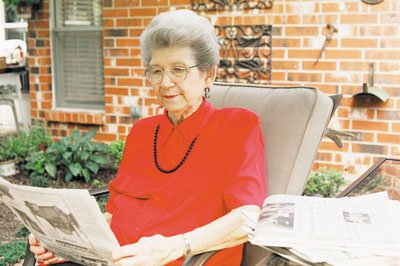Carolyn Lawrence figures she lost so much from her retirement
fund in recent weeks that she’ll need to work at least three years
more just to cover the difference.
Joel Dresang – Milwaukee Journal Sentinel
Carolyn Lawrence figures she lost so much from her retirement fund in recent weeks that she’ll need to work at least three years more just to cover the difference.
Lawrence, who’s 62, retired two years ago.
Concerns about the economy and the preservation of her life savings have disrupted her plans. She’s putting the sale of her house on hold, has taken up a part-time job and is cutting back on her lifestyle to accommodate the collapse of Wall Street.
Watching retirement plans lately has been like witnessing a house fire: The closer you are, the more horrific the spectacle.
September retirement account statements are reflecting a collective destruction of $1.6 trillion or 18 percent of value since September 2007, according to an Urban Institute report released last week. That doesn’t even include fallout from the early October meltdown.
The impact is harshest on those in or near retirement. According to the Urban Institute’s Retirement Policy Program, the median retirement account for the 94 million Americans 50 and older is down to about $89,000, wiping out nearly all the gains made in the two previous years.
Lawrence retired as a customer service supervisor from We Energies, where she had worked for 32 years. She had hoped to travel, spend time with her grandchildren, sell her Milwaukee bungalow and move into the duplex she rents to her daughter.
She did manage to take a 35-day tour of the South Pacific last year, but when she returned, she was greeted by talk of recession, which upset her plans.
“I just didn’t feel comfortable,” Lawrence said.
She mothballed plans to sell her house after a real estate agent valued it at about half of what Lawrence was counting on. She has drastically cut back on her shopping trips to resale shops. She isn’t planning any trips. She treats herself to just one half-decaf Starbucks latte a week.
And like a growing number of retirees, Lawrence is back at work – a part-time job that helps her cover the mortgage and utilities and minimizes her need to dip into her retirement savings.
“I’m just kind of making it,” Lawrence said. But if her car breaks down or her furnace goes out, she says, it’ll be another story.
“It’s been a challenging time for a lot of people,” said Mark Zalewski, vice president for private wealth management at Milwaukee’s Robert W. Baird & Co. “Younger people who have a long time to save should look at this as a real opportunity.”
That’s because stocks now are cheap, and younger workers have a longer time to let the market recover lost ground. While the average retiree experienced an 18 percent loss from his retirement account through September, the average worker who is 30 years away from retirement will see only a 5 percent dent in his account, according to the Urban Institute. That’s based on workers contributing 10 percent of pay annually to an account balanced between stocks and bonds.
“People that are looking at retirement, they have to take a hard look at what they have and make sure that they have saved enough,” Zalewski said, “and if they haven’t saved enough, see what they can do to adjust that.”
Zalewski too is assuring investors to ride out the turbulence.
“We try to talk them out of jumping out,” Zalewski said of the most skittish retirees. “It’s kind of like jumping off the roller coaster when the car is moving. You’re going to get killed. And you don’t want to be doing that.”
Despite recent experience, equity investments have a long history of rising more than falling. And although retirees generally should lower the risk in their portfolios as they get older, financial experts say that some degree of equity holdings are needed to help funds from losing ground to inflation and taxes.
Richard W. Johnson, a retirement policy researcher with the Urban Institute, expects the financial shakeup to stir Americans into saving wiser and working older.
“People are going to be more concerned about retirement security in general,” Johnson said. “Hopefully, people will live a little more frugally when they’re younger, to the extent that they can.”
Lawrence exercises regularly and tries not to worry about what she can’t control – like the financial markets.
“I have a lot of faith in the United States,” Lawrence said. “As long as I’m physically able to work, that’s what I’ll do.”














